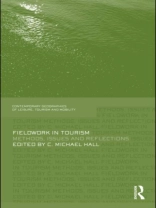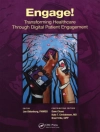The inherent mobility of tourists and consequent relative ephemerality of contact between the visitor and the visited tourism phenomenon have specific characteristics that challenge the usual fieldwork practices of the social and physical sciences. Such conditions create specific concerns for the tourism researcher in terms of their positionality, relationality, accessibility, ethics, reflexivity, and methodological appropriateness.
Fieldwork in Tourism is the first book to focus on this extremely significant component of contemporary tourist research and provides hands on approaches to conducting tourism fieldwork in a range of settings, exploring the methodological considerations and offering strategies to mitigate these. The book also discusses how fieldwork affects researchers personally and what happens to field relationships. Divided into five sections, each with an introduction and a guide to further reading, the chapters cover the context of fieldwork, research relationships, politics and power, the position of the researcher in the field, research methods and processes, including virtual fieldwork, and the relationships between being a tourist and doing fieldwork. The concluding chapter suggests that the link between tourism and fieldwork perhaps offers greater insights into understanding creative fieldwork than may be imagined.
This book incorporates a rich and diverse set of fieldwork experiences, insights and reflections on conducting fieldwork in different settings, the problems that emerge, the solutions that were developed, and the realities of being ‘in the field’. Fieldwork in Tourism is an essential guide for Tourism higher level students, academics and researchers embarking on research in this field.












